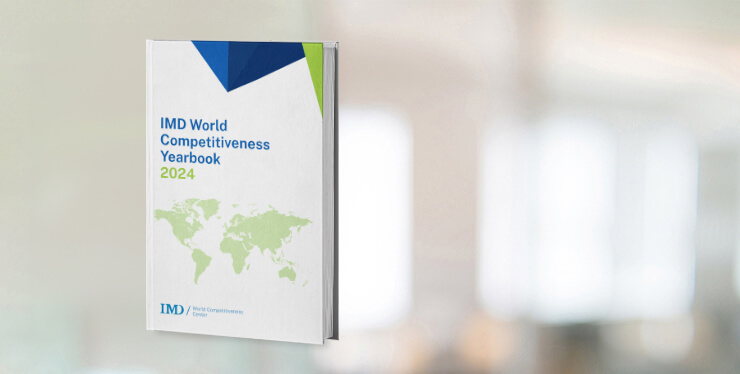
A history lesson (from year one) for Trump and the Brexit crowd: Isolationism has never worked!
From Trump’s wall and immigrant ban, to Britain pulling away from its longtime partners, the tendency toward isolationist policies is on the rise in the west.
We’ve seen this before but it has never had the intended effect of making any country in question “great again”.
When Chinese admiral Zheng He returned to his country in 1424 after his impressive fleet vessels – of up to 120 meters in length – had navigated the world’s oceans, he was ordered by the new Emperor Hongxi to erase all traces of his expedition. Thus, began a long period of isolationism for China. In 1793, when Sir George McCartney led a British Embassy visit to Chinese Emperor Qianlong, he found a rich court, but a nation in disarray. This period of Chinese history was later described as the “Immobile Empire” in a book by French writer and politician Alain Peyrefitte.
Who made the greatest contribution to world prosperity? The magnificent Chinese fleet whose discoveries were discarded or the three insignificant ships of Christopher Columbus – each a mere 22 meters long – which a few years later opened the roads to new worlds? A British economist, Angus Maddison, has tried to shed some light on the subject and to explain the long-term economic development of nations since… year one.
At the time, China and many European countries had a relatively similar GDP per capita estimated at around USD $600. In 1300, Northern Italy became the richest region in the world with a GDP per capita of over USD $1,600. In 1600, the Netherlands reached first place with a GDP exceeding USD $2,650 per capita. By 1820, it was Great Britain’s turn to become the richest nation, thanks to its trading empire and the industrial revolution. For all of them, international trade and openness were fundamental to wealth creation.
In contrast, China, which had often experienced long periods of isolationism, didn’t reach the level of year one again until 1963. For almost 2,000 years, Chinese leaders had failed to increase the long term wealth of their population. Then in 1979, under the leadership of Deng Xiaoping, China reversed trends and initiated a new “Open Door” policy. The results have been staggering. Today, GDP per capita in China is over USD $8,000. And, to come back to where we started – shipping – China is now home to more than half of the world’s 50 largest ports and accounts for 39% of world shipping transactions.
It is an astonishing feat of history: China has understood the message of openness and trade at the very same time as the winners of yesterday – the United States of America, Britain, and perhaps soon France and the Netherlands – believe that they will regain prosperity by withdrawing from the global community.
Of course, one should not underestimate the ugly side of globalization either. According to the OECD, 70% of middle-class households in wealthier nations have not seen any growth in their revenues over the past ten years. In the United States, revenue stagnation affects 80% of these households and almost 100% in Italy. Such a trend deserves to be addressed and corrected, but not with the protectionist approach suggested by many of today’s populist movements, which have historically failed.
Why do openness and trade create prosperity? Fundamentally, because in an open world with free trade people on the other side of the border, the enemies of past wars, have more economic value alive than dead. The day that China overturned a strategy of confrontation and revolution for one of openness and trade, it became a prosperous and powerful nation.
Victor Hugo expressed the same idea during his memorable speech at the Peace Congress of 1849 in Paris. His words are now inscribed on the monument that commemorates the battle of Waterloo: “The day will come when there will be no other battlefields than markets opening to trade and minds opening to ideas”. What a tragedy that so many government leaders today seem to have forgotten the lessons of history!
Stéphane Garelli is a world authority on competitiveness and has pioneered research in this field. He is Professor Emeritus at IMD where he founded the World Competitiveness Center.
Research Information & Knowledge Hub for additional information on IMD publications
In that article I explained that modern safety leaders need more than just technical skills to survive in a VUCA (Volatile, Uncertain, Complex & Am...
Earlier this month, the European Union began executing its tariffs on China for electric vehicle (EV) imports, yet the dated practice of taxing pro...
This paper introduces the New Industrial Policy Observatory (NIPO) data set and documents emergent patterns of policy intervention during 2023 asso...
The parenthood wage gap – different wage levels for employees with versus without children – is one of the key factors contributing to gender wage ...

in Safety and Health Practitioner 29 January 2019
Research Information & Knowledge Hub for additional information on IMD publications
Research Information & Knowledge Hub for additional information on IMD publications
Research Information & Knowledge Hub for additional information on IMD publications
Research Information & Knowledge Hub for additional information on IMD publications
Research Information & Knowledge Hub for additional information on IMD publications
in The World Economy July 2024, vol. 47, no. 7, pp. 2762-2788, https://doi.org/10.1111/twec.13608
Research Information & Knowledge Hub for additional information on IMD publications
Research Information & Knowledge Hub for additional information on IMD publications
in Hitotsubashi Business Review Summer 2024, vol. 72, no. 1
Research Information & Knowledge Hub for additional information on IMD publications
Published by International Institute for Management Development ©2024
Research Information & Knowledge Hub for additional information on IMD publications
Research Information & Knowledge Hub for additional information on IMD publications




